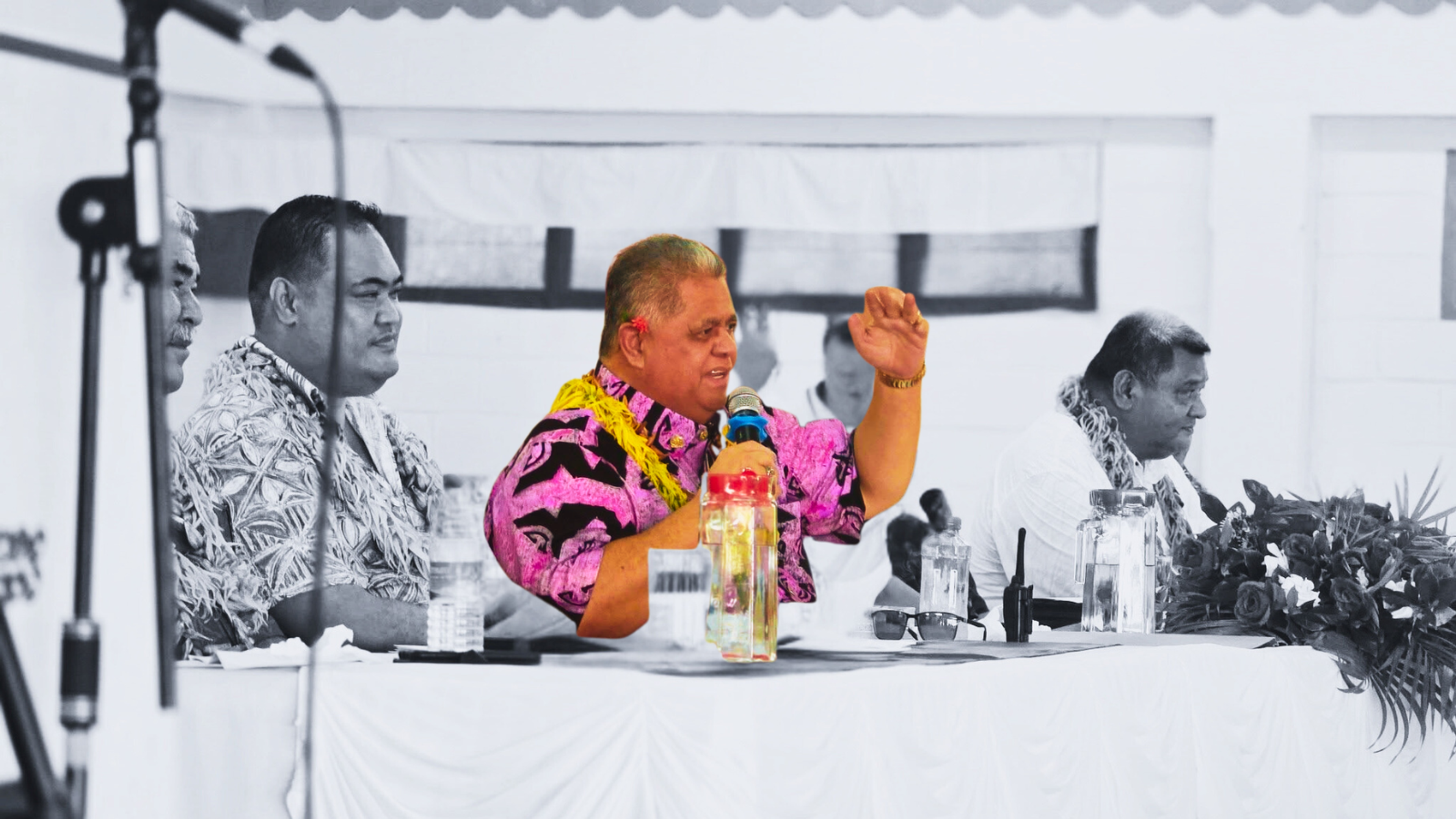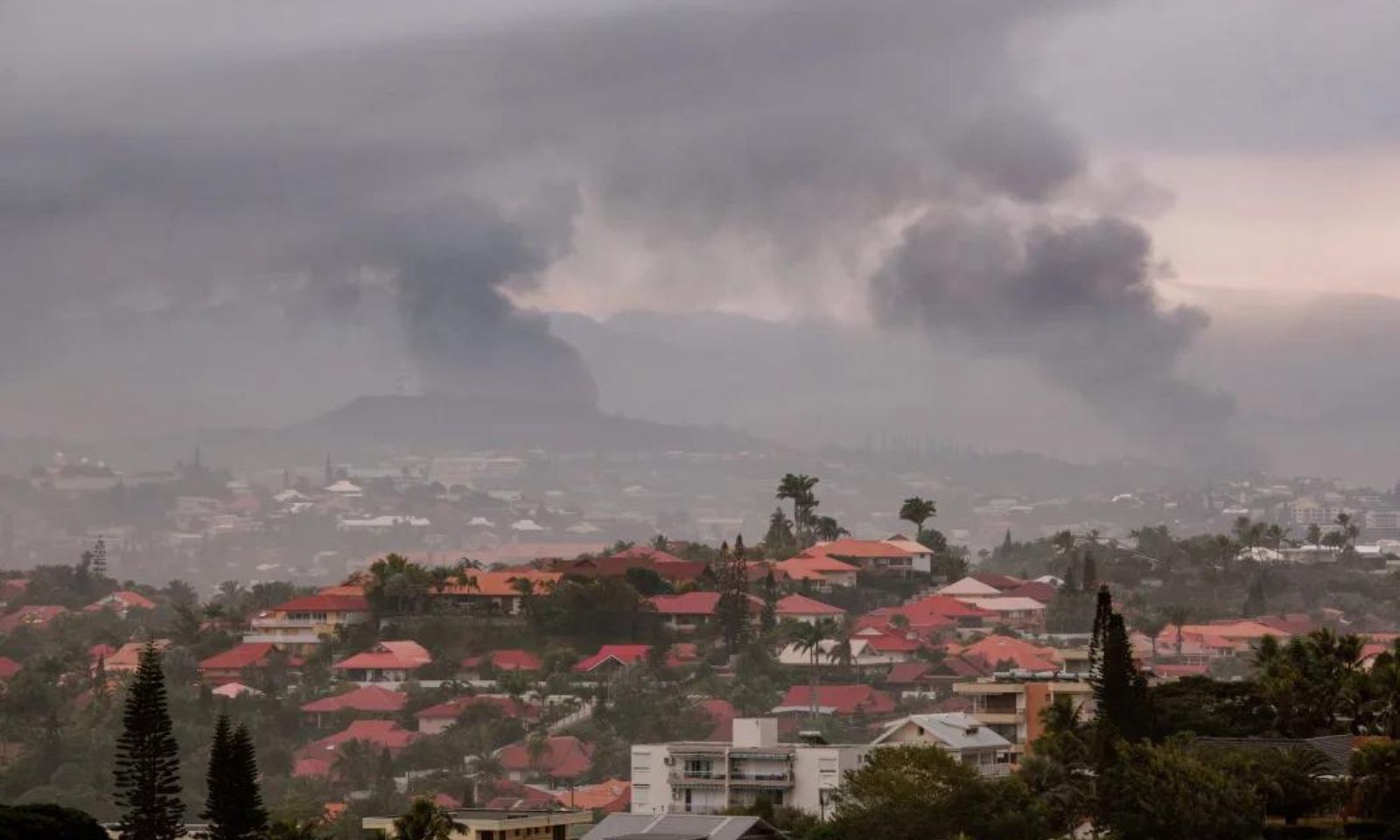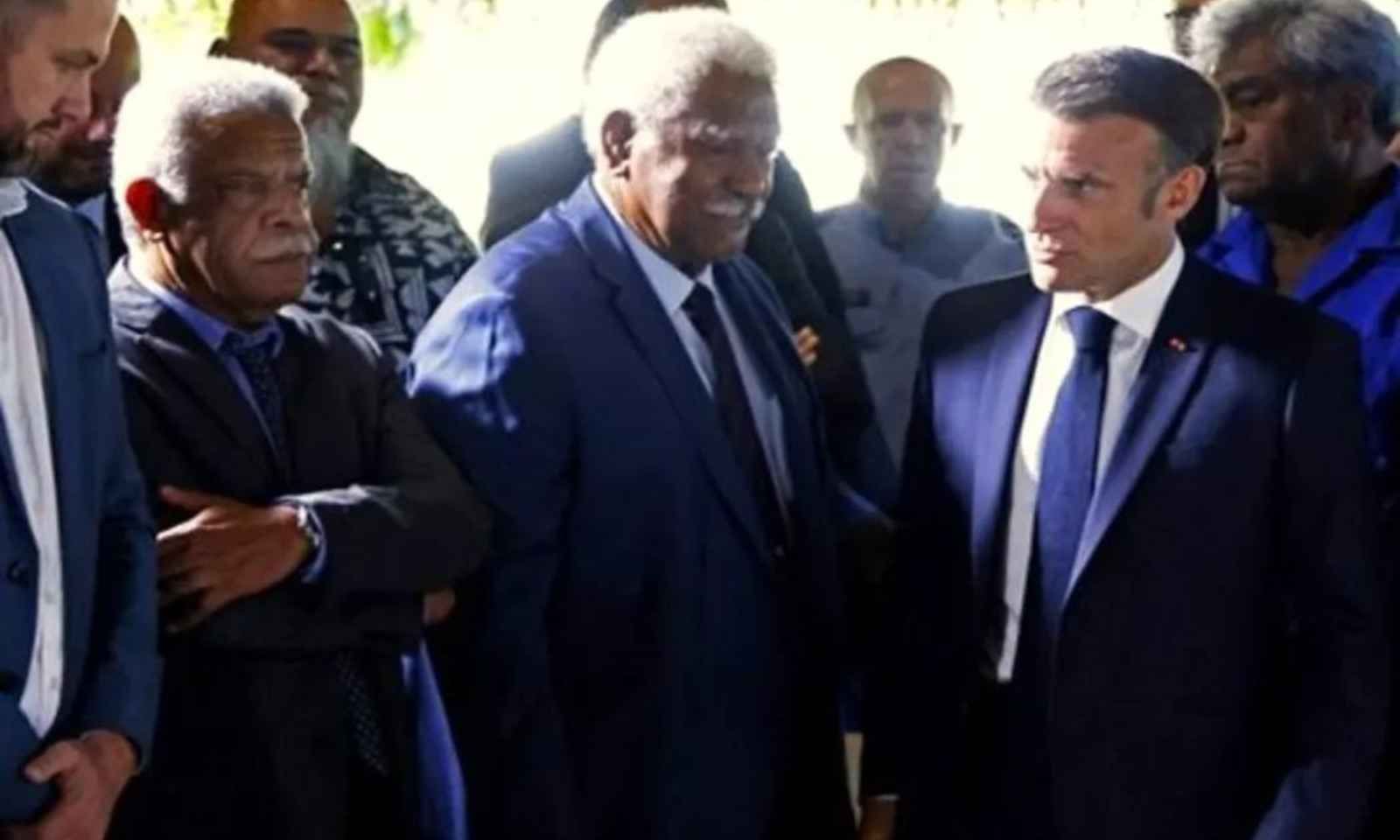

Pro-independence supporters rally in New Caledonia. Photo/supplied
'Prickly and difficult': France criticised over its handling of New Caledonia crisis
International law expert Al Gillespie says the Pacific Islands Forum needs to be at the forefront of any solution in the region.



New Zealand-United States minerals talks spark concerns over Pacific seabed mining

From netball star to Matatū: Fia Laikong speaks on leap of faith



New Zealand-United States minerals talks spark concerns over Pacific seabed mining

From netball star to Matatū: Fia Laikong speaks on leap of faith
The ongoing unrest in New Caledonia is a regional problem and the Pacific Islands Forum needs to be at the forefront of any solution, international law expert Al Gillespie says.
His comments follow France's top diplomat in the Pacific, Veronique Roger-Lacan, being criticised this week for her response to the delayed PIF Troika-led mission to Noumēa.
A forum fact-finding delegation was expected to visit the troubled French Pacific territory last week ahead of the leaders' summit in Tonga this week.
Roger-Lacan is in Nuku'alofa and told PMN News Political Reporter, 'Alakihihifo Vailala, that the forum visit was deferred because there was a lack of consensus among PIF members.
Watch law expert Al Gillespie's full interview below.
Roger Lacan's comments have not gone down well with the Pacific leaders including New Caledonia's pro-independence President Louis Mapou, who has accused the French government of trying to control the narrative surrounding the political unrest in Noumēa.
Mapou said Paris was also undermining decolonisation in his country.
New Zealand's Deputy Prime Minister Vaovasamanaia Winston Peters also denied Roger-Lacan's claims, saying her comments were "not helpful".
With no end in sight to the ongoing civil unrest in New Caledonia, there have been statements, counter-statements, denials, and affirmations from both sides of the conflict.
Gillespie said France was being difficult, given the situation was now a "very sensitive one".
"I think we need to take a step back. This is a regional problem. The PIF needs to be at the forefront of any solution.
"This is significant, not just for New Caledonia but for the area itself, because the Pacific needs to stand up and be at the front of solving these difficulties.

Smoke bellows across the capital, Noumēa, during the violent unrest that broke out on 13 May. Photo/supplied
"In this particular instance, there has been a disagreement over who is responsible for the first failed mission. But the PIF needs to stand up and say yep we want to go and these are the terms that we want to go on."
New Caledonia is among the key issues forum leaders are expected to discuss in Tonga.
Gillespie said the French were being "prickly" in their handling of the situation.
"They're being quite difficult at the moment and it is a sensitive issue and there are many sides to this debate.
"There was a primary agreement in Suva that this mission would be supported and it would be forced through.
"It's important not just for New Caledonia but for the region because we've got many areas that will need security and transitions to greater development in the future. We have to get this right so that we can learn for others coming forward."
Gillespie said the current argument was about protocol, yet there was no discussion about the next referendum.
President Emmanuel Macron has deferred the election that will allow new French arrivals to New Caledonia voting rights - a move the Indigenous Kanak and pro-independence supporters say will weaken their fight for self-rule.
Watch New Caledonia pro-independence leader Jimmy Naouna's interview below.
Calls have been made for the United Nations to send a delegation to Noumēa.
A report by the UN Special Committee, released in June, expressed concern that France did not provide information on French Polynesia Tahiti and New Caledonia by the provisions of the UN Charter.
Roger-Lacan said France was the administering power and in control of New Caledonia, adding that they were legally in international public law.
She said France recognised the decolonisation process and was engaged with it.
UN Secretary-General Antonio Guterres is also in Tonga and said the Decolonisation Committee was established in 1961 to monitor the implementation of the international commitment to granting independence to colonised peoples.
Today, some 17 territories, home to two million people and mostly part of the former British empire, are under the UN's purview.
Fiji and Papua New Guinea are both long-term committee members, which has listed New Caledonia as a UN non-self-governing territory under French administration since 1986.
In the Pacific, American Samoa, French Polynesia, Guam, Pitcairn, and Tokelau also remain on this list.
The 53rd Forum Leaders Meeting ends on Friday.

French President Emmanuel Macron, right, visits Noumēa days after the riots broke out. At left is New Caledonia's pro-independence President Louis Mapou. Photo/supplied